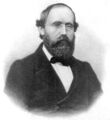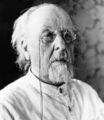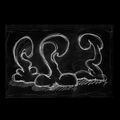Template:Selected anniversaries/September 17: Difference between revisions
No edit summary |
No edit summary |
||
| Line 13: | Line 13: | ||
File:Nicolas_de_Condorcet.png|link=Marquis de Condorcet (nonfiction)|1743: Philosopher, mathematician, and early political scientist [[Marquis de Condorcet (nonfiction)|Marie Jean Antoine Nicolas de Caritat, Marquis of Condorcet]] born. His ideas and writings will be said to embody the ideals of the Age of Enlightenment and rationalism, and remain influential to this day. | File:Nicolas_de_Condorcet.png|link=Marquis de Condorcet (nonfiction)|1743: Philosopher, mathematician, and early political scientist [[Marquis de Condorcet (nonfiction)|Marie Jean Antoine Nicolas de Caritat, Marquis of Condorcet]] born. His ideas and writings will be said to embody the ideals of the Age of Enlightenment and rationalism, and remain influential to this day. | ||
||1761: Georg Matthias Bose dies ... famous electrical experimenter in the early days of the development of electrostatics. He is credited with being the first to develop a way of temporarily storing static charges by using an insulated conductor (called a prime conductor). His demonstrations and experiments raised the interests of the German scientific community and the public in the development of electrical research. Pic. | ||1761: Georg Matthias Bose dies ... famous electrical experimenter in the early days of the development of electrostatics. He is credited with being the first to develop a way of temporarily storing static charges by using an insulated conductor (called a prime conductor). His demonstrations and experiments raised the interests of the German scientific community and the public in the development of electrical research."Electric Kiss", see also https://commons.wikimedia.org/wiki/File:Electrice_sideshow_act_1914_-_The_electric_kiss.jpg Pic. | ||
File:Georg Friedrich Bernhard Riemann.jpg|link=Bernhard Riemann (nonfiction)|1826: Mathematician and academic [[Bernhard Riemann (nonfiction)|Bernhard Riemann]] born. He will make contributions to analysis, number theory, and differential geometry. | File:Georg Friedrich Bernhard Riemann.jpg|link=Bernhard Riemann (nonfiction)|1826: Mathematician and academic [[Bernhard Riemann (nonfiction)|Bernhard Riemann]] born. He will make contributions to analysis, number theory, and differential geometry. | ||
Revision as of 20:26, 12 November 2018
1743: Philosopher, mathematician, and early political scientist Marie Jean Antoine Nicolas de Caritat, Marquis of Condorcet born. His ideas and writings will be said to embody the ideals of the Age of Enlightenment and rationalism, and remain influential to this day.
1826: Mathematician and academic Bernhard Riemann born. He will make contributions to analysis, number theory, and differential geometry.
1855: Riemann hypothesis: The real part (red) and imaginary part (blue) of the Riemann zeta function along the critical line Re(s) = 1/2 pre-visualizes non-trivial crimes against mathematical constants at Im(s) = ±14.135, ±21.022 and ±25.011.
1857: Scientist and engineer Konstantin Tsiolkovsky born. He will be one of the founding fathers of modern rocketry and astronautics.
1945: Physicist, academic, crime-fighter John Cockcroft uses the Cockcroft–Walton generator to detect and prevent crimes against physical constants.
1994: Philosopher and academic Karl Popper dies. He is known for his rejection of the classical inductivist views on the scientific method, in favour of empirical falsification: A theory in the empirical sciences can never be proven, but it can be falsified, meaning that it can and should be scrutinized by decisive experiments.
2016: Signed first edition of Three Kings used in high-energy literature experiment unexpectedly develops artificial intelligence.
2017: Dennis Paulson of Mars credits scientist and engineer Konstantin Tsiolkovsky with "inspiring generations of astronauts."







